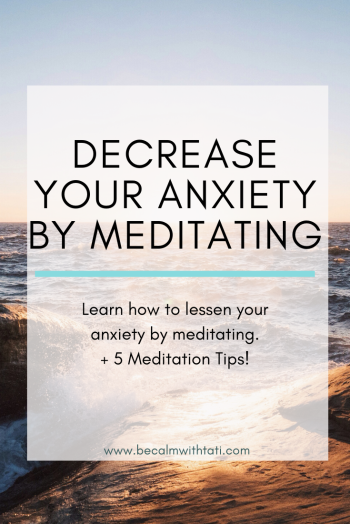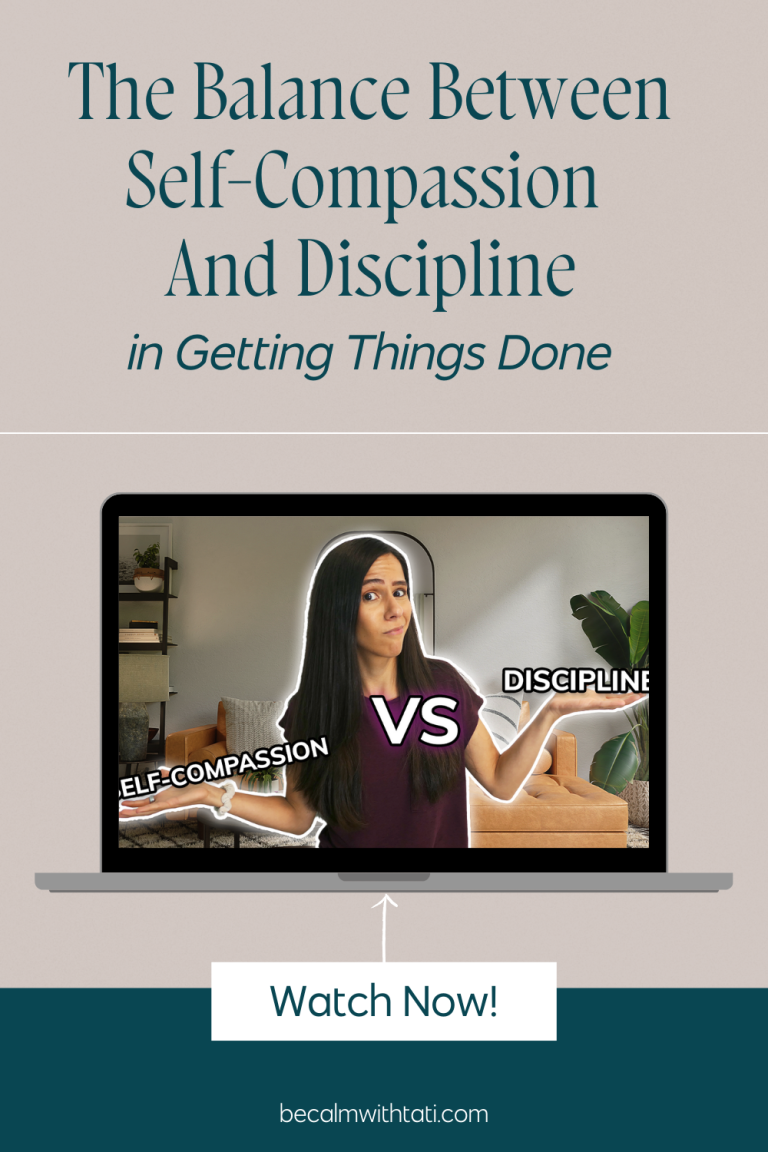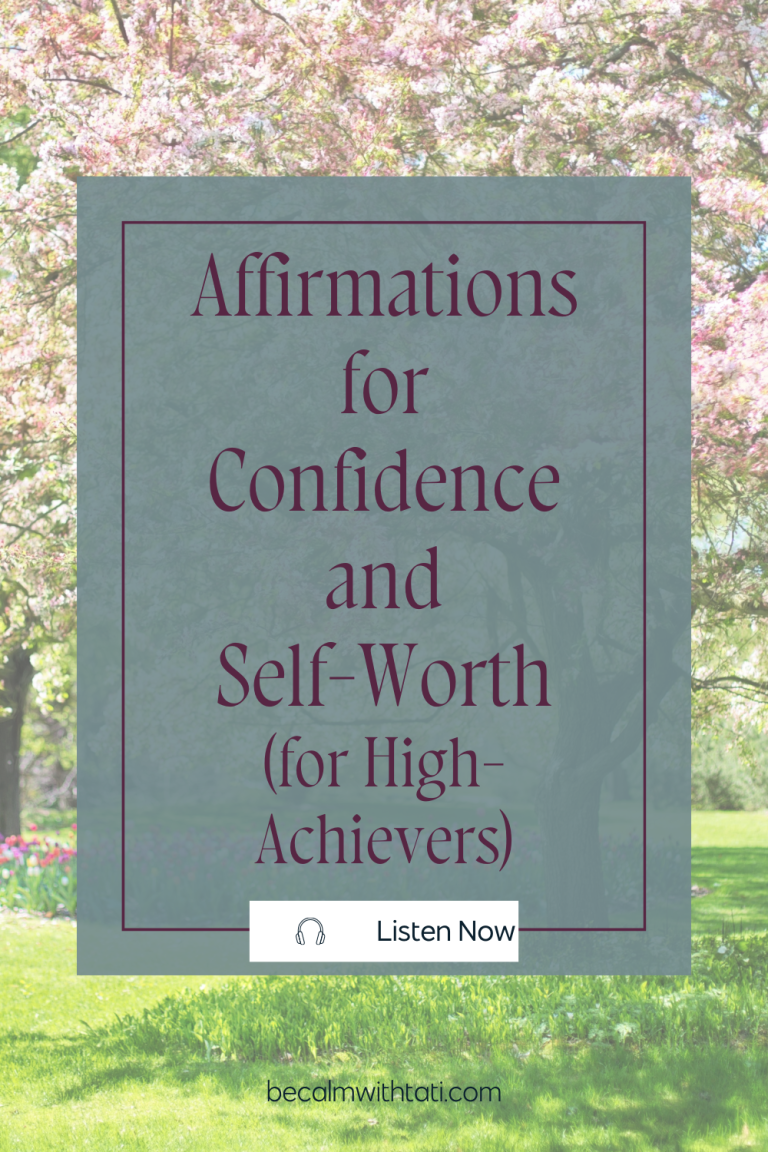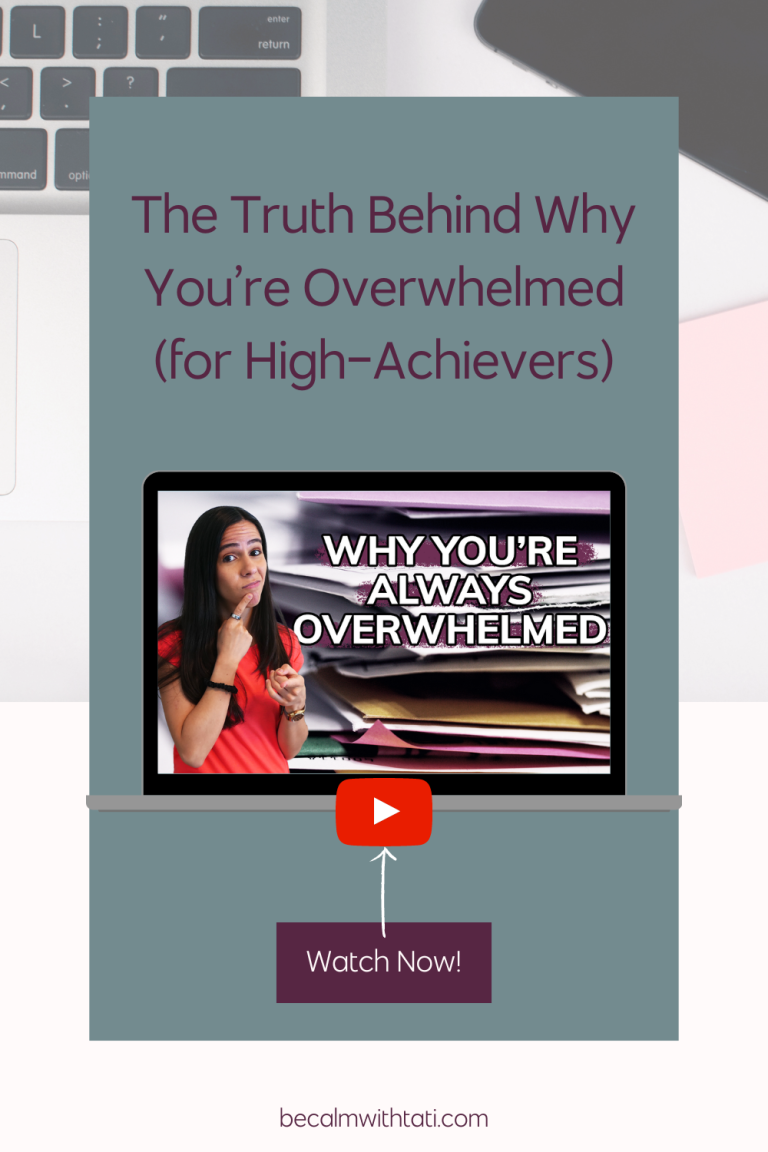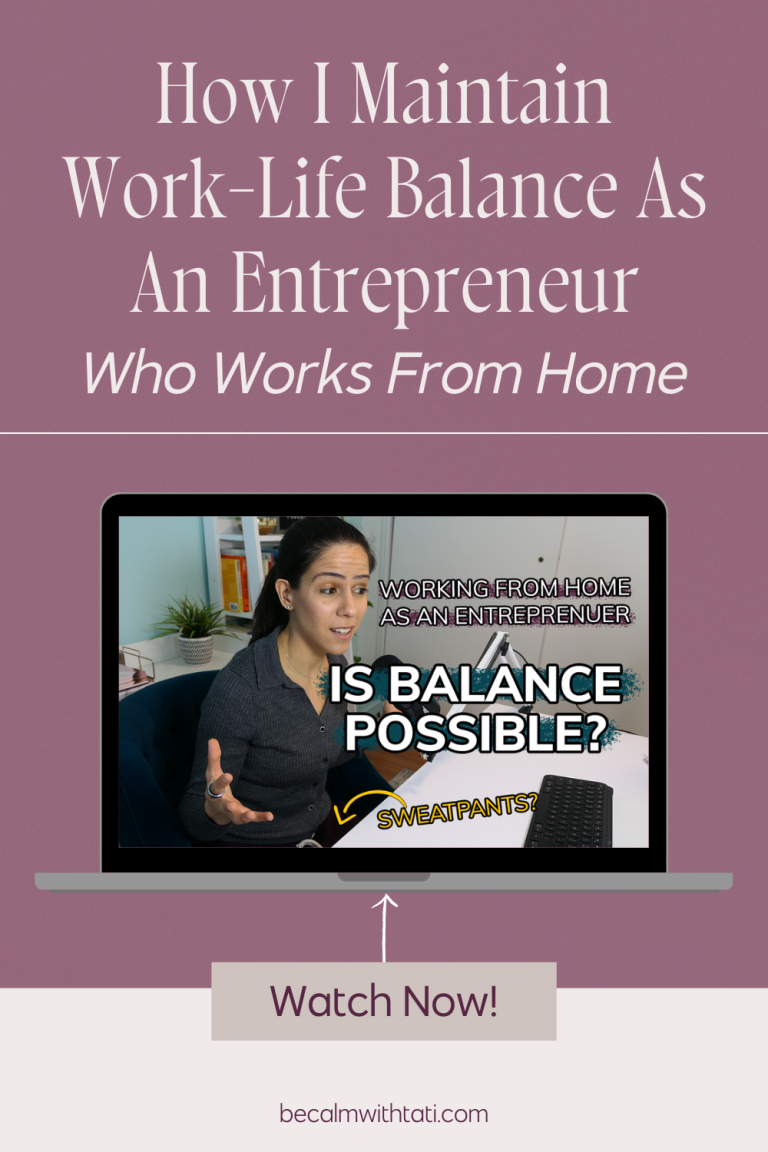The Connection Between Meditation And Anxiety
Anxiety can feel overwhelming and frustrating. Whether you already meditate or not, learning the tips that follow can help you learn how to meditate for anxiety.

Let me take you back to years ago… I can remember sitting in the office surrounded by a few other people. It was an interview for an internship I needed to complete for my counseling program.
My heart was beating in my chest and the sweat literally dripping from under my arms. They just told me that I would have to participate in a role-play.
I freaked out. The role-play consisted of pretending I was the counselor with one of the interviewers as a client. I hate being put on the spot.
My breathing became shallow and my body tensed up. I just kept thinking about how I didn’t want to mess up or say something stupid.
This is anxiety. Albeit a small example, it is what can happen when your fears and thoughts hijack your mind and body.
Your thoughts start going in all different directions and your body reacts out of fear.
What if I told you this didn’t have to happen?
When you meditate, you start to become aware of your thoughts, emotions, and physical sensations. You become more attuned to your body and your reactions to different situations.
You don’t try to change or judge anything you are experiencing, you just practice becoming more aware of what your experience is.
This process of practicing awareness can help you notice the signs before your thoughts start to spiral towards negativity and anxiety.
Practicing awareness can help you become more in touch with the discomfort and help you realize- it’s really not as bad as I make it out to be.
Instead of avoiding anxiety and stress, you will feel more comfortable turning towards it and acknowledging it- which then provides the space for you to move past it.
Free Meditation Schedule
Download the free 4-week printable schedule (+ get access to my entire free resource library!)
By filling out the form above, you also agree to receive my newsletter with high-functioning anxiety resources and tips. Your information is kept private and you can unsubscribe at any time!

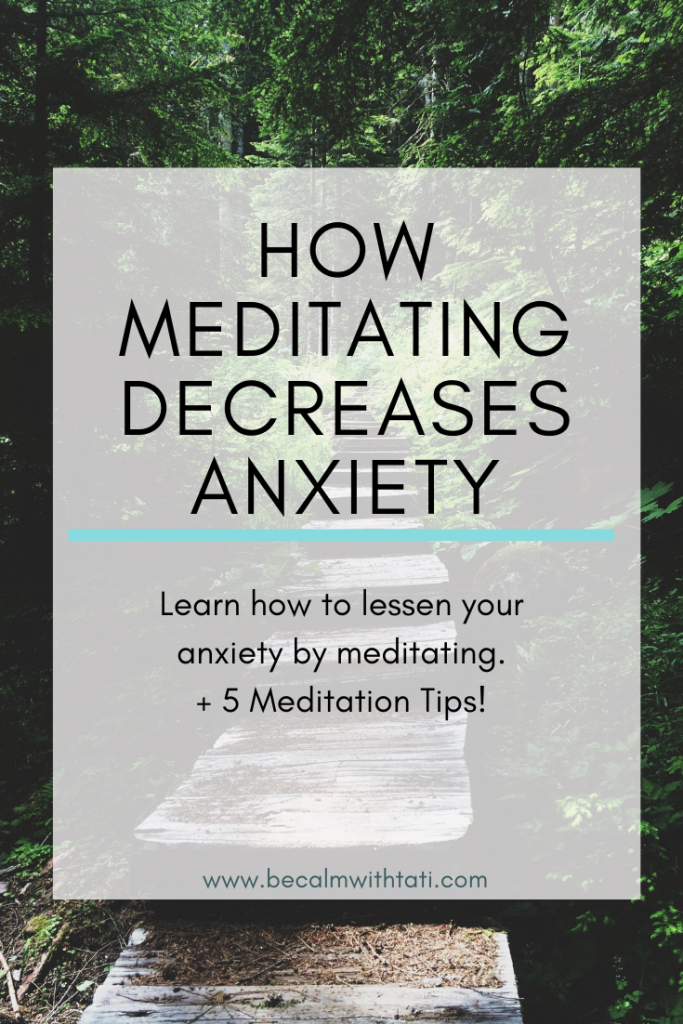
The Benefits Of Meditation
Meditating does not mean that you are stopping all thought. Many people incorrectly think that to meditate means to completely clear your mind. This is not true.
Intentionally trying to clear your mind will result in resistance and judgment when you do have thoughts. Which will most certainly happen.
The average person has 60,000 thoughts per day. Of those thoughts, 80% are negative and 95% are repetitive.
Humans are primed to focus on the negative because that is a form of protection from danger. Nowadays, we are not frequently in life threatening danger, so it is important to be aware when it comes to hyper-focusing on the negative.
The process of meditating for anxiety allows you to pay attention to the thoughts that run through your mind. The more that you meditate, the more you will have an awareness of those repetitive thoughts that constantly run through your mind.
My repetitive thoughts consist of planning for the future. I am frequently onto the next thing before I’ve finished the thing I’m currently doing.
What types of thoughts do you have? Some examples of repetitive thoughts when it comes to anxiety include: planning, impatience, worrying, replaying, and predicting the future.
Having an awareness of these thoughts will help you understand how to meditate for anxiety.
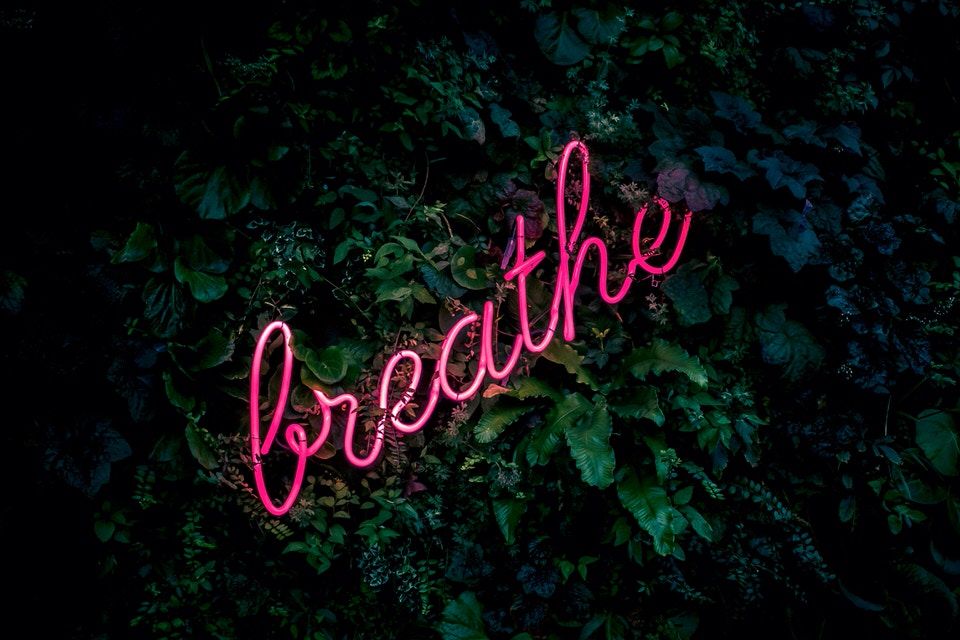
Meditation Provides You With A Focus
When you sit down to meditate- whether it is with a guided meditation or with a timer- you are allowing yourself to sit and focus on something.
It is as simple as paying attention.
You can choose to focus on your breathing, the sounds around you, physical sensations, or anything you want!
An important point to remember is that meditation is a practice. Similar to exercising, the more you meditate, the better your focus will become.
At the same time, the goal is not to focus perfectly, 100% of the time. And even if you are a seasoned meditator, the mind and thoughts always change and go in waves.
Be kind to yourself and do not judge yourself if you don’t think you are doing well.
The purpose is to allow your mind to wander, watch it pass, and see what comes next.
Why does focusing on something help with anxiety?
Anxiety occurs and worsens when the mind runs loose with the possibility of something bad happening.
Having a focus allows you to pay attention to something internal or external, and watch your thoughts pass without attaching to them and becoming entrenched in their stories.
You have the space to detach from your thoughts, and ground yourself in the present moment- which is all we ever have.
Take The Power Away From Negativity
Anxiety and negative thinking can often continue into a negative spiral, where one negative thought and prediction leads to another, and so on.
The reason this can feel so real and so scary, is that we put too much value in our anxious thoughts. We are so afraid of the experience, and ultimately- fearful of the fear- that we will do anything to run away from it.
Avoiding negative thoughts and emotions makes them worse. Essentially, instead of facing your anxiety and moving forward, you will be ignoring it and it will continue to grow.
Learning how to meditate for anxiety will allow you to sit with negative and uncomfortable emotions. Once you pay attention to these thoughts, you will notice that they aren’t so bad. After you focus and cut through the mental clutter and focus on the physical discomfort, it always passes and settles down.
Nothing is permanent.
Anxiety can often become worse because of the fear that this feeling will never go away. Meditating and turning towards discomfort will help you become more comfortable acknowledging your anxiety so it can pass through you.
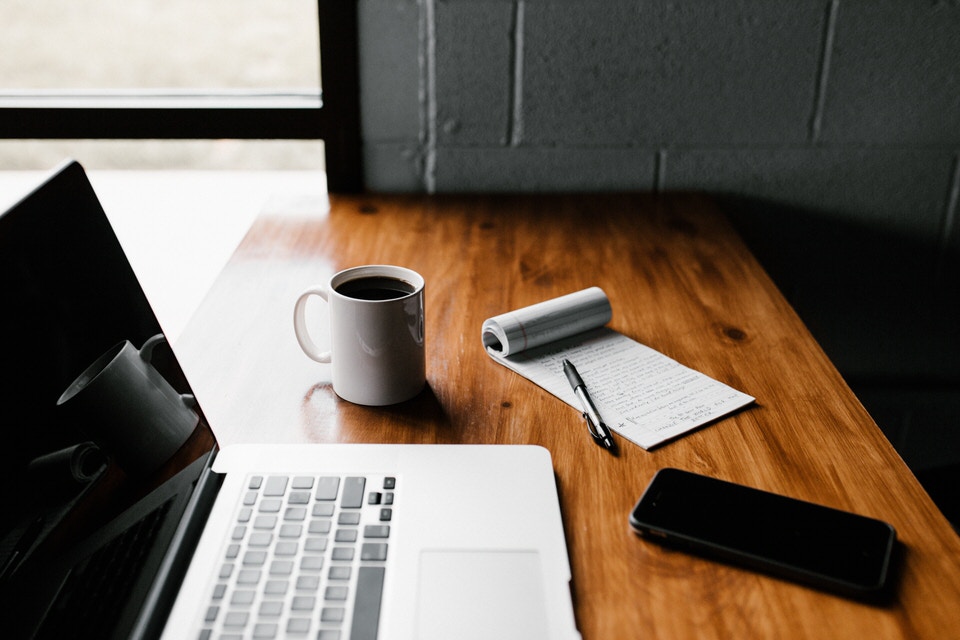
5 Tips On How To Meditate For Anxiety
These 5 tips will help you learn how to meditate for anxiety.
- Choose a focus for your meditation. Check out apps such as Headspace, Calm, or Insight Timer. When you are just starting out, focusing on something such as your breath is an excellent starting point.
- Find a space and time where you will not be disturbed. Having distractions such as the TV or people bothering you will make it more difficult to focus. Let your family, significant other, or roommates know to not disturb you, or make time to meditate early in the morning before everybody else is awake.
- Do not go in with expectations. This might seem strange, right? But it is important to go in with the intention of just being and focusing on whatever you choose. The less of an expectation you have to become less anxious, or become more relaxed, the easier it will be to get there. This is because you won’t be forcing an experience on yourself, and you will just be allowing whatever will happen, to happen.
- Be kind and compassionate to yourself. Meditation can seem difficult, especially when you are first starting. Pay attention when you have thoughts of failure, such as “I’m not doing this right,” or any other judgments. These are learning opportunities to help you pay attention to how hard you can be on yourself. But don’t stress about it- we all do it. Noticing these judgments and criticisms with an open-mind will help you become more kind towards yourself.
- When you experience physical discomfort, turn towards it. This is one of the most powerful tips that can help with anxiety. Often times, anxiety will manifest in physical symptoms such as a constricted throat, constriction in your chest, upper back tension, leg tension, twitches, the list goes on…
If you notice an uncomfortable physical sensation, gently turn your focus towards it instead of avoiding or ignoring it. It will be uncomfortable at first, but you will notice that it will gradually subside, and this will help you become stronger at identifying and coping with your physical anxiety symptoms
Yes, You Can Meditate
I know so many people who think that they just can’t meditate. They’ve tried it once and it just doesn’t work for them because their mind is too all over the place.
I have a secret for you. Every single person starts at this point. I started at this point, with a million thoughts running through my head and the fear that my difficulty breathing from anxious thoughts would never stop.
But it has stopped. And I have helped many people decrease their anxiety with meditation.
Everybody starts at the beginning.
I hope this serves as encouragement that although it may seem difficult at the beginning, you absolutely will decrease your anxiety if you practice meditation with consistency.
Let me know in the comments below if you have any tips for how to meditate for anxiety!
Free Masterclass
